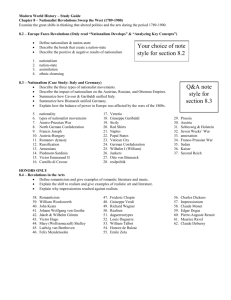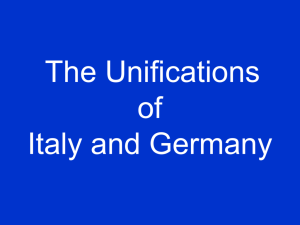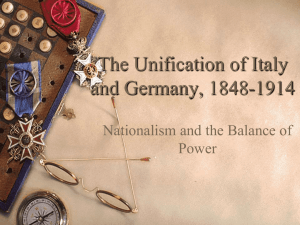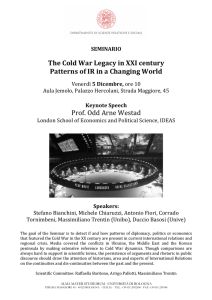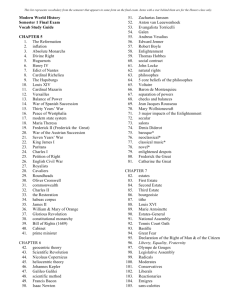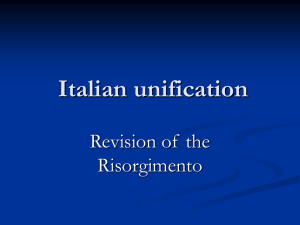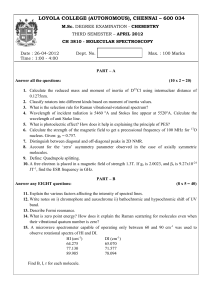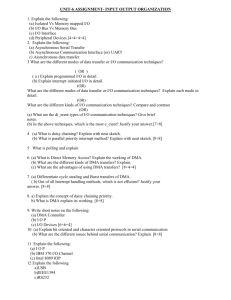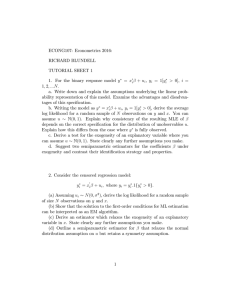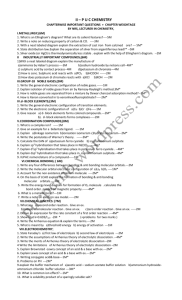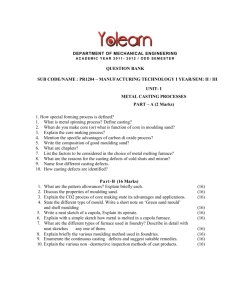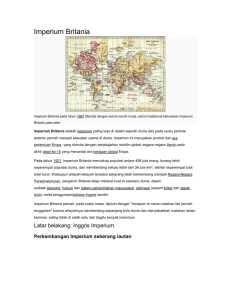Chapter 23 Guided Reading
advertisement
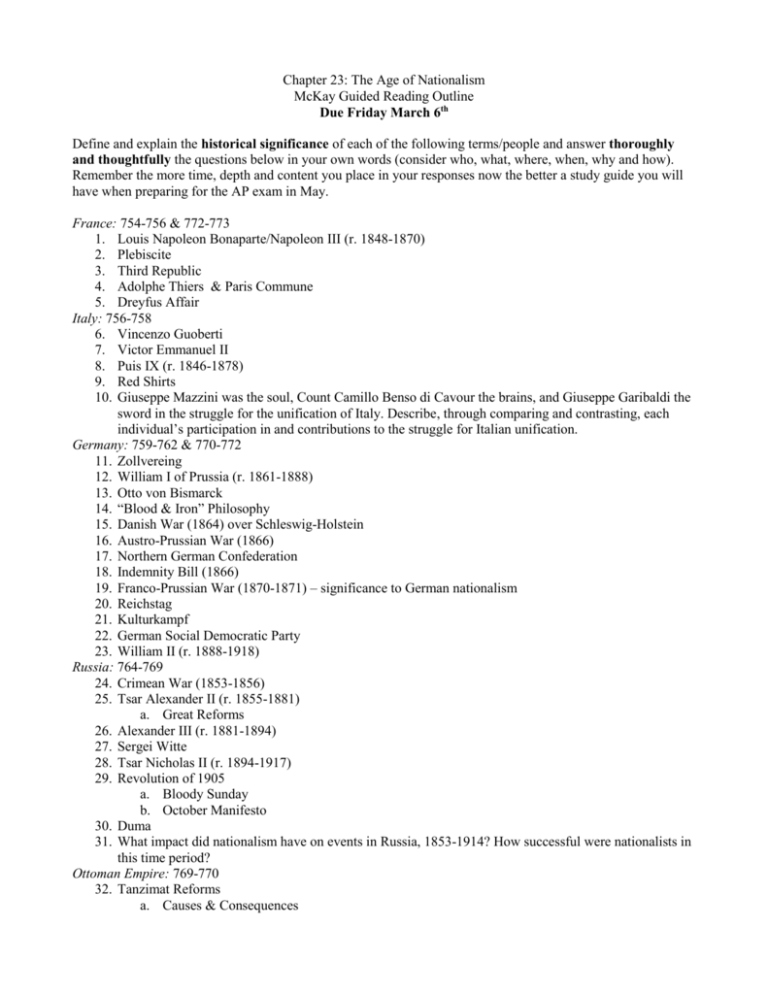
Chapter 23: The Age of Nationalism McKay Guided Reading Outline Due Friday March 6th Define and explain the historical significance of each of the following terms/people and answer thoroughly and thoughtfully the questions below in your own words (consider who, what, where, when, why and how). Remember the more time, depth and content you place in your responses now the better a study guide you will have when preparing for the AP exam in May. France: 754-756 & 772-773 1. Louis Napoleon Bonaparte/Napoleon III (r. 1848-1870) 2. Plebiscite 3. Third Republic 4. Adolphe Thiers & Paris Commune 5. Dreyfus Affair Italy: 756-758 6. Vincenzo Guoberti 7. Victor Emmanuel II 8. Puis IX (r. 1846-1878) 9. Red Shirts 10. Giuseppe Mazzini was the soul, Count Camillo Benso di Cavour the brains, and Giuseppe Garibaldi the sword in the struggle for the unification of Italy. Describe, through comparing and contrasting, each individual’s participation in and contributions to the struggle for Italian unification. Germany: 759-762 & 770-772 11. Zollvereing 12. William I of Prussia (r. 1861-1888) 13. Otto von Bismarck 14. “Blood & Iron” Philosophy 15. Danish War (1864) over Schleswig-Holstein 16. Austro-Prussian War (1866) 17. Northern German Confederation 18. Indemnity Bill (1866) 19. Franco-Prussian War (1870-1871) – significance to German nationalism 20. Reichstag 21. Kulturkampf 22. German Social Democratic Party 23. William II (r. 1888-1918) Russia: 764-769 24. Crimean War (1853-1856) 25. Tsar Alexander II (r. 1855-1881) a. Great Reforms 26. Alexander III (r. 1881-1894) 27. Sergei Witte 28. Tsar Nicholas II (r. 1894-1917) 29. Revolution of 1905 a. Bloody Sunday b. October Manifesto 30. Duma 31. What impact did nationalism have on events in Russia, 1853-1914? How successful were nationalists in this time period? Ottoman Empire: 769-770 32. Tanzimat Reforms a. Causes & Consequences b. Specific Reforms 33. Sultan Abdulhamid II (r. 1876-1909) 34. Young Turks Great Britain & Ireland: 773-775 35. House of Commons & House of Lords 36. Third Reform Bill of 1884 37. Peoples Budget 38. Liberal Party (actions) 39. William Gladstone/Irish Home Rule 40. Ulsterites (Northern Ireland) Austro-Hungarian Empire: 774-775 41. Dual Monarchy (why created & dilemmas) 42. Magyars 43. Explain how nationalism divided the Austro-Hungarian Empire. Guided Reading: 44. Trace the history of anti-Semitism in Europe through the late 19th c. Explain how anti-Semitism is connected to nationalism. 45. Describe the transformation of socialism from the utopians, to Marx, to evolutionary socialists (revisionists). Explain why evolutionary socialism emerged in the late 19th c. – include the roles of nationalism and the responsive national state.
